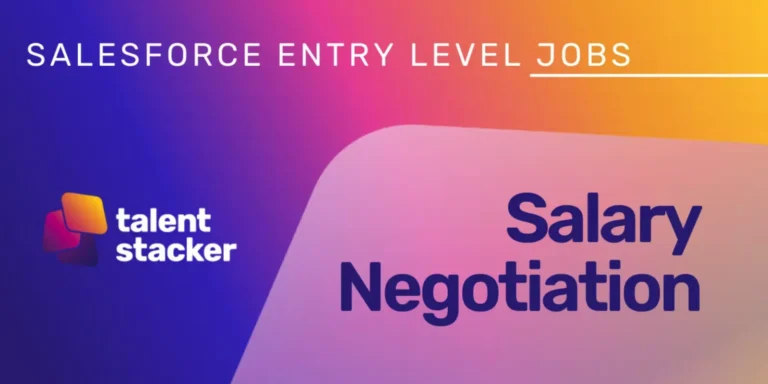When transitioning into a new career it can be exciting when you get an offer! There is a stream of emotion including happiness, disbelief, insecurity, gratitude and that’s just to start! However the offer may seem a little low, or maybe you’ve gotten advice that you should always negotiate. But before we jump the gun and decide what to do let’s gain an understanding of the situation. Not all scenarios are the same, actually they aren’t even close to the same, this is an individual decision and in this article we will cover the topics you should be sure to consider before negotiating your salary and benefits for any role.
TABLE OF CONTENTS
Are you Coming From a Position of Strength?
There are typically a couple of indicators that will help you quickly determine if you are coming from a position of strength. If you are in a strength position that means you are much better suited to negotiate your offer(s) with lower risk when doing so. Let’s take a look at the most common situations that would cause a comfortable negotiation position.
Are you currently employed in a job that you are willing to keep for a few months?
If you answered yes that means you are in a good position to negotiate for what you want or wait things out for a better opportunity. You’re in a safe space because if things don’t work out with this offer you can still fall back into the job you currently have, keep the bills paid and patiently strategize to find that perfect fit!
Do you have 2nd and 3rd interviews lined up or have offers from other companies?
For most roles, especially with Salesforce jobs you should expect anywhere from 2 to 5 interviews in the hiring process for any given company. If you are already in 2nd and 3rd round interviews with other companies or you are getting passed into multiple rounds consistently that means you are liking going to be getting more offers soon. You may also find yourself in a situation where you have multiple offers on the table. If this describes you then you are in a strength position and should consider negotiating especially if you feel any of the offers are below market value.
How to Know if You’re in a Position of Weakness
On the other hand you may in a weak position. That doesn’t mean you should just accept whatever you’re offered, but it does mean we don’t want to be overly picky with what we accept in this first role. Once again there are a couple of major indicators that will tell us if we are currently in a weak negotiation position.
Are you currently unemployed or in a toxic job?
If you are unemployed and struggling to pay the bills month to month then accepting the offer on the table may be the best choice. You may also be in a job currently where you absolutely hate going to work each day, this may be because of a toxic environment with co-workers or management or simply the job itself. Either way these are situations we need to get out of quickly and negotiating over another $5,000 or a few extra days of PTO shouldn’t be a priority.
Are you struggling to get interviews?
You might find yourself in a position where you have been trying to break into a new career for months and you finally have that first job offer on the table. If you don’t accept this role, or deter the employer with negotiation conversations you might find yourself job searching for months waiting on that next offer. If this is you, then you should strongly consider accepting the offer in hand to get some experience and improve your marketability. Keep in mind if you accept a role that doesn’t mean you are going to work there forever. You can even continue applying for jobs while you work the current job you accept, no one is stopping you. It’s all about what you’re comfortable with. Who knows, maybe you’ll fall in love with this role if you give it a chance! We certainly aren’t advocating that you take jobs and quit them quickly, but in the modern job market you do have more control of your work situation and you should be aware of your options.
How Would You Feel if the Employer Rescinded the Offer?
How would you feel if they gave the offer to someone else? Take a deep breath and imagine this scenario.You emailed over your negotiated terms 3 days ago, you’ve been waiting on their response checking your emails every hour patiently anticipating their response and then you wake up, check your phone and… AN EMAIL FROM THE HIRING MANAGER!!! But wait, the email says in a really nice and professional way that they have decided to hire someone who had more experience and they were willing to accept the original offer.How do you feel? Did this just ruin your day, week or even month? Do you feel like giving up? Like maybe this new career isn’t for you? If so you know you should not be negotiating!If you are disappointed but know you negotiated for the right reasons and that next opportunity will be here soon if you’re just patient… Then you’re doing the right thing by negotiating.
Would You Accept the Current Offer?
Would you accept the current offer if you knew the employer was not willing to negotiate with you?It’s important to actualize ourselves prior to playing games with the offer. I’m more conservative than most so for me if I can truly say that if I would not accept this offer then clearly I should negotiate for something I am willing to accept.However if I’m willing to accept the offer either way, I would error on the side of not negotiating given that I know I’ll regret it if I lose the offer. I can live with myself if I’m just wondering if I would have made more with a negotiation as I know the more experience I gain the more I’ll get paid with the right strategies.
Is the Offer Below Market Value or Not Enough to Pay Your Bills?
First things first, your personal finances have absolutely nothing to do with your value to a company. They are not interested in your mortgage and car payments so don’t negotiate for what you need if that is not at all aligned with what your worth.Another fact to note is that what you’ve made at past jobs also has nothing to do with your value in this new career path, could you have transferable skills that help you make more? Of course but don’t assume you have tremendous value because someone overpaid you in the past.Now that we’re past that let’s consider if you are being paid fair market value. Please don’t rely on salary surveys or what you heard, from an isolated scenario about what one individual made. For Salesforce roles entry level salaries typically range between $60k and $80k. For more details on salary expectations see our Salesforce Salary Article Here.
The Bottom Line & Other Tips
Getting a job offer is a really exciting moment. It can become even more exciting when you start imagining negotiating and getting paid even more or garnering even better benefits! However we need to get real with ourselves and determine if we are in a position to negotiate. If you do determine you would like to negotiate remember you can request more than just money. Consider some of the below items as well!
- Additional PTO Days
- More Work From Home Days
- Future Performance Raises or Bonuses
- An all expenses paid trip to DreamForce or Certification Vouchers
No matter what you decide, be sure to be professional and keep in mind the needs of your employer. You need to make sure you are serving your employer if you expect them to serve you.Are you Ready to Change Your Life?If you’re not quite at a point where you’re ready to negotiate and you’re still just getting started with your Salesforce journey be sure to checkout our Free 5 Day Salesforce Challenge for people just like you! Taking the FREE challenge will help you to better understand the Salesforce Ecosystem and how you can successfully break in! Also be sure to get in touch with top tier recruiters like Josh Matthews here! Josh has helped countless Salesforce professionals better understand the Salesforce ecosystem and land their first Salesforce job! Ready to Join the Full Program Today?Ready to step off the certification hamster wheel and unlock your new Salesforce job with the Salesforce Career Development Program today? Start with the Talent Stacker Career Sherpa to discover your own MTJ (Months to Job) number!





